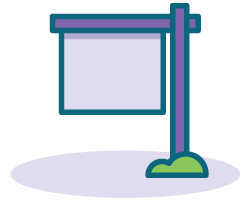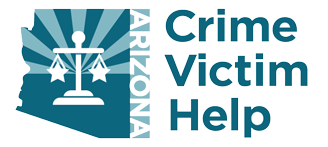Foreclosure
What is a foreclosure?
A foreclosure is when a lender (such as a bank) takes a home back from a borrower who cannot repay their loan.
When someone purchases a home with a mortgage, the home acts as “security” for the mortgage. Security” is something that is promised as a guarantee of repayment. This means that the lender has the power to take the home back if the borrower “defaults” on the mortgage by failing to do what the contract requires.

A borrower can default on a mortgage by failing to make their payments on time and in full, by failing to keep the home insured, or by failing to pay the home’s property taxes.

If the borrower runs into trouble, the lender can take the home back, sell it to somebody else, and use the money from the sale to cover the borrower’s unpaid loan. If the home sells for more than the borrower owes, the borrower is usually entitled to what are called the “excess proceeds” of the sale.
How does the foreclosure process work?
In some states, the lender must file a lawsuit against the borrower to start the foreclosure process.
However, Arizona is what is called a “non-judicial foreclosure” state. As a result, the lender does not need a court order to take your home back. If a borrower’s mortgage payments are “delinquent” (late) by 120 days or more, the lender can start the foreclosure process and eventually sell your home at auction so long as they follow the proper procedures.

What can I do if I am having trouble paying my mortgage?
If you are having trouble paying your mortgage, you may want to contact your lender to try to negotiate a new payment arrangement or modify the loan.

IMPORTANT: The sooner you act, the better. Ignoring the problem only makes things worse.
ALSO: If you receive a letter in the mail, you should open and read it carefully right away!
ALSO: If you receive a letter in the mail, you should open and read it carefully right away!
For more information about how to avoid foreclosure, you may want to ask for guidance from a housing counseling agency. A listing of housing counseling agencies approved by the U.S. Department of Housing and Urban Development is available here.
Other helpful information about preventing foreclosure is available here.
The federal government’s Making Home Affordable program offers free expert help and foreclosure prevention tips here. You can also call 1 (888) 995-HOPE (4673).
Free mortgage counseling assistance is available through the toll-free Arizona Foreclosure Helpline at 1 (877) 448-1211.
An online application for mortgage payment assistance from the State of Arizona is available here.
Does my lender need to notify me when I fall behind on my payments?
Yes. Whenever a borrower misses a payment, the lender must contact the borrower to discuss the missed payment and provide the borrower with options to “mitigate” (reduce) the borrower’s future losses. 12 C.F.R. § 1024.41(f);


Does my lender need to tell me in advance that they plan to foreclose on my home?
No. Arizona law does not require the lender to send a written notice of default to the borrower before starting the foreclosure process. However, once the process begins, the lender must provide written updates to the borrower at every stage.
Can I stop the foreclosure process even after it has started?
Yes. A borrower has a right to reinstate their mortgage by paying the full amount owing at any time up until the home is sold at auction. The trustee appointed to handle the sale can tell you exactly how much you must pay to get your home back.


Is there anything else I can do to stop my home from being sold?
Although it will be difficult to prevent the sale of your home if you are unable to come up with the money to pay what you owe, you may be able to delay the process by filing an injunction to stop the sale with the Superior Court in the county where your home is located. It would be wise to consult with a lawyer beforehand. In some situations, filing for bankruptcy may also be an option worth considering.
How can I avoid foreclosure rescue scams?
Unfortunately, lots of companies try to take advantage of people whose homes are in danger of foreclosure. Information about such scams is available here.
To help you avoid such scams, the Arizona Department of Financial Institutions provides the following helpful list of foreclosure “Do’s” and “Don’ts”

Foreclosure DO'S
DO call the Arizona Mortgage Foreclosure Help Line (1-877-448-1211) for a FREE bilingual connection to an Arizona counselor trained to help you in working with your lender to modify your loan.
DO call your lender or servicer the moment you think there might be a problem with paying your mortgage on time.
DO walk away from anyone that wants you to pay an upfront fee for their help.
DO be wary of anyone who says they can save your home if you will simply sign the deed over to them. Signing your home over to anyone can quickly lead to the loss of your home.
DO contact your lender at once to implement a “work out” program or a plan if you fall behind on your mortgage payment. If you cannot bring your mortgage payments current, think about selling your home and keeping equity you have built up.
DO get promises in writing. Oral promises are not legally binding.
DO call your lender or servicer the moment you think there might be a problem with paying your mortgage on time.
DO walk away from anyone that wants you to pay an upfront fee for their help.
DO be wary of anyone who says they can save your home if you will simply sign the deed over to them. Signing your home over to anyone can quickly lead to the loss of your home.
DO contact your lender at once to implement a “work out” program or a plan if you fall behind on your mortgage payment. If you cannot bring your mortgage payments current, think about selling your home and keeping equity you have built up.
DO get promises in writing. Oral promises are not legally binding.

Foreclosure DON'TS
DO NOT pay an upfront fee for loan modification services.
DO NOT sign documents with blank spaces or blank documents.
DO NOT sign any documents that you do not understand.
DO NOT ignore lender “warning letters.”
DO NOT sign over your deed without consulting a trusted expert.
DO NOT file for bankruptcy to keep your home without first contacting a lawyer.
DO NOT sign documents with blank spaces or blank documents.
DO NOT sign any documents that you do not understand.
DO NOT ignore lender “warning letters.”
DO NOT sign over your deed without consulting a trusted expert.
DO NOT file for bankruptcy to keep your home without first contacting a lawyer.


